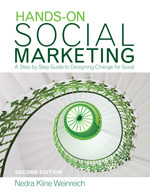 As I was catching up with my pile of unread Wall Street Journals, I came across a couple of articles that at first glance had nothing in common.
As I was catching up with my pile of unread Wall Street Journals, I came across a couple of articles that at first glance had nothing in common.
The first (Crop Prices Soar, Pushing Up Cost of Food Globally) talks about how the recent turn toward producing environmentally friendly biofuels has driven up the price of food worldwide and may force central banks to raise interest rates in order to fight the resulting inflation.
One of the chief causes of food-price inflation is new demand for ethanol and biodiesel, which can be made from corn, palm oil, sugar and other crops. That demand has driven up the price of those commodities, leading to higher costs for producers of everything from beef to eggs to soft drinks. In some cases, producers are passing the costs along to consumers. Several years of global economic growth – led by China and India – is also raising food consumption, further fanning the inflationary pressures.
So environmentalists who think they are only doing good by using their Willie Nelson biodiesel may in fact be increasing the numbers of starving people in developing countries – certainly not what they intended.
The other article (The Backlash to Botox – which I was not able to find reprinted in full anywhere) recounts the difficulty that television casting directors are having in finding actresses who do not have Botox-frozen or surgery-enhanced faces. They just can’t find women who look their age, or who are able to create appropriate facial expressions. With high definition television, these cosmetic procedures become even more apparent (“The Botox used to be less noticeable but high def has changed that,” says one network president. “Now half the time the injectibles are so distracting we don’t even notice the acting.”) Ironically, many of these women started using Botox specifically to look better for the camera and to hide their wrinkles from the close-ups.
The common thread between the two articles, as you have probably already figured out, is that you cannot always predict all potential consequences of a particular behavior. Inevitably, someone somewhere will do exactly what you want them to do, which will somehow set off a sequence of events that leads to a bad outcome of some sort. Whether it’s your campaign to get women to call for an appointment for a mammogram that overloads the local hospital’s phone circuits and prevents other patients from being able to get through, or an exercise program that leads to overzealous participants with twisted ankles and shin splints, you may not be able to predict all possible outcomes.
So how do you deal with the unforeseen when you don’t know what exactly you are looking for? First of all, continue to stay tuned in to your target audience (you know who they are, right?). Pay attention to what they are talking about. Listen to personal anecdotes. And continue to look downstream from the point where you are engaging them in behavior change. What are the positive things that are happening? What else are people doing related to that change? How are others outside of the target audience responding to your campaign or to the people who have adopted the behavior change? Have social norms shifted one way or the other? Have power dynamics changed, and with what effect?
While chaos theory may not be entirely appropriate to use to describe the effects of human behavior, it’s certainly true that small changes can trigger other unforeseen events down the line. One person’s footsteps can set off a massive avalanche. Being aware of that possibility, rather than assuming that effects of the intervention will be confined to the variables in our logic model, is the key.
Photo Credit: ariel.chico

 Nedra helps nonprofits and public agencies create positive change on health and social issues through social marketing and transmedia storytelling strategies at Weinreich Communications since founding the company in 1995. She helps organizations make a difference for the populations they serve by strategically designing programs that draw on state-of-the-art behavior change techniques, digital media approaches and the power of stories.
Nedra helps nonprofits and public agencies create positive change on health and social issues through social marketing and transmedia storytelling strategies at Weinreich Communications since founding the company in 1995. She helps organizations make a difference for the populations they serve by strategically designing programs that draw on state-of-the-art behavior change techniques, digital media approaches and the power of stories. 
Nice Post.
Kind of like the Sarbanes-Oxley legislation Congress pushed through after the Enron-WorldCom-era debacles. SOX’s intention was to make corporate financial dealings more transparent to the investor community thus making our securities both more competitive in world markets and less subject to fraud.
The unintended consequence of SOX was that its excessive paperwork and reporting structures killed off a significant portion of the US IPO market, and made American securities exchanges less competitive vis-a-vis London, Singapore, and Hong Kong.
Another great example, Roger. Thanks!